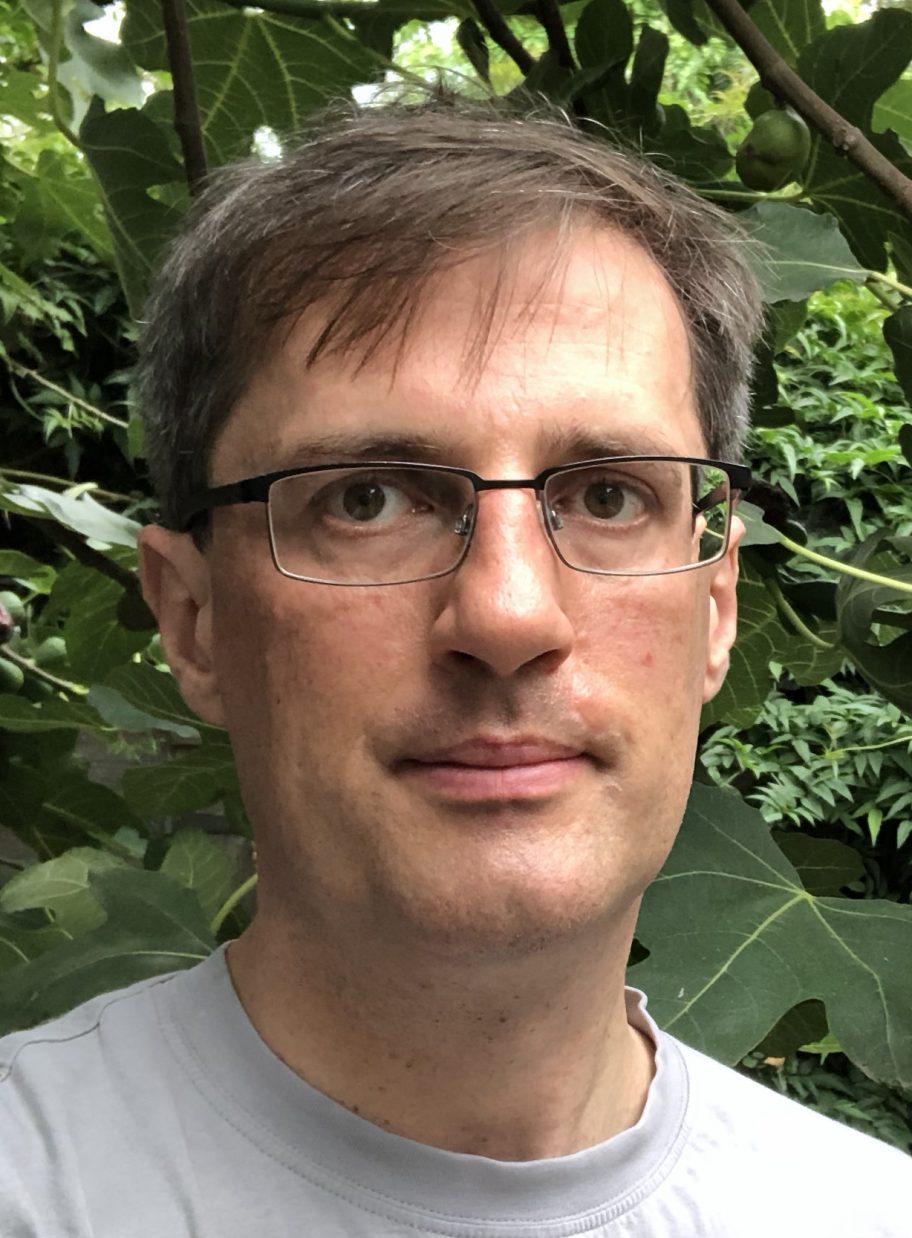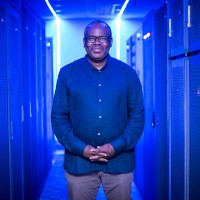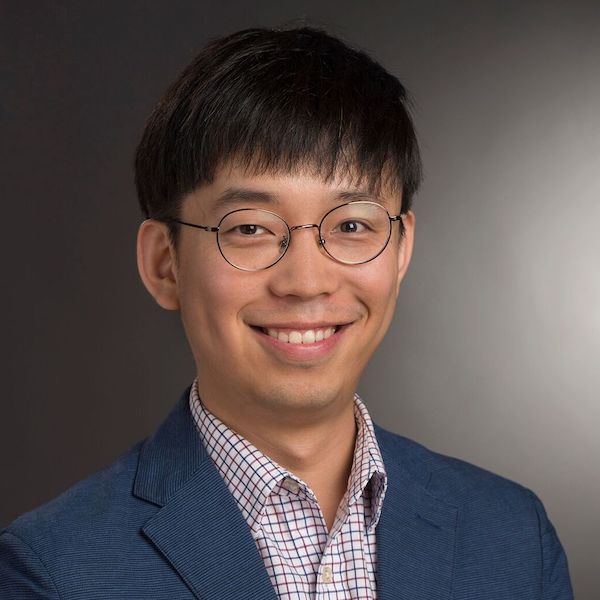2023 Steering Committee Candidates
Key Election Dates
- Call for Nominations: 1 to 28 October 2023
- Online Election: 1 to 3 November 2023
- Results Announced: 8 November 2023

Haley Williams
Lexicon Bank
Candidate Statement
I have experience steering two IT steering committees and we need to see more women of color a part of committees that are changing the culture of IT security. I believe in safety and holding folks accountable to safeguard and educate people in the industry. I’m passionate about safeguards and would like to join and make a difference.
Biography
I’m a retired Navy veteran who has worked in the IT field for over 20 years.
As an Information Officer at Lexicon Bank, I am responsible for ensuring the security and compliance of the bank’s data and systems, as well as managing vendor relations and contracts.
I have over 20 years of work experience in the IT and security field, with previous roles as VP of Information Security Officer at First Security Bank of Nevada, ISSO at Raytheon, and System Administrator at Ka’ala Systems Technology. I have a BTech in Management Information Systems from Devry San Diego and multiple certifications in Microsoft 365 and Google Workspace. I am skilled in Microsoft 365 administration, vendor relations, generative AI, and Google Workspace security.
My core competencies include risk management, incident response, policy development, and audit preparation. I am passionate about protecting the bank’s assets and customers from cyber threats and collaborating with other teams and stakeholders to achieve the bank’s mission and goals. I bring diverse perspectives and experiences to the security team and strive to create a culture of trust, innovation, and excellence.

Nicolas Fiumarelli Santana
LANIC
Candidate Statement
I’m Nicolas Fiumarelli, a 33-year-old computer engineer from the University of Uruguay. Currently, I serve as a networks engineer at LACNIC, the Internet Addresses Registry for the LAC region, where I’ve been instrumental in the development and implementation of RPKI and DNSSEC, fortifying our region’s Internet infrastructure.
In 2016, my passion for youth empowerment led me to co-found Youth IGF Uruguay, a non-profit dedicated to building capacity and training young minds on Internet governance topics. This journey continued in 2020 when I was honored to join the Internet Society Youth Ambassador Program, mentoring the next generation of Internet enthusiasts.
My advocacy for youth and technology found a new avenue in 2021. I became a spokesperson for youth initiatives, playing pivotal roles as a panelist and technical advisor for Youth LACIGF 2021. Furthermore, I co-founded the NGO, IoT Cybersecurity LAC, championing the secure and sustainable development of IoT technologies. My recent engagements at IGF ’21 and ’22 saw me moderating and speaking on diverse topics, from youth engagement and IoT security to the intriguing concept of interplanetary networks. In 2023, I took a leadership role in organizing a significant session at the IGF, which can be accessed here. This session, designed to address top cybersecurity threats, brought together experts from various sectors, culminating in a ‘Cybersecurity Best Practice Guide’.
As an activist and researcher, I’m passionate about emerging fields like quantum communications and computing. I see myself as an evangelist for security and privacy, advocating for the inclusion of young voices in national, regional, and global Internet governance. My vision is to amplify youth participation, fostering a bottom-up approach to public policy in a multi-stakeholder space. I’m also dedicated to enhancing the synergy between National and Regional Initiatives, ensuring young voices resonate globally.
Beyond these endeavors, I’ve been actively collaborating with the Internet Society Alumni Network, organizing workshops, webinars, huddles, and coffee chats for Internet Society members.
I believe in a secure, inclusive, and vibrant digital future, and I’m committed to making it a reality. For a deeper dive into my professional journey, please visit my LinkedIn profile. I’m eager to bring my expertise and vision to the MANRS Steering Committee, ensuring a resilient and secure Internet for all.
Biography
Nicolas Fiumarelli is a prominent figure in Internet governance and security domains and has been at the forefront of pioneering advancements in the Latin American and Caribbean region, especially in the development and implementation of RPKI and DNSSEC. His profound expertise in RPKI has strengthened the region’s Internet infrastructure, establishing global best practices and standards.
In 2023, Nicolas demonstrated his leadership by organizing a significant session at the IGF, addressing top cybersecurity threats from diverse angles, including IoT security, critical internet infrastructure, web security, and the emerging realm of quantum technologies. This workshop was meticulously curated to convene experts from various sectors, such as the Dynamic Coalitions, Best Practice Forum (BPF) on cybersecurity, academia, government, and the technical community. The session’s goal was to foster a round-table discussion, elucidating the current state of cybersecurity across the Internet’s multiple facets and culminating in a ‘Cybersecurity Best Practice Guide’.
Beyond this, Nicolas has been actively engaged in organizing several workshops and has been working voluntarily with the Internet Society Alumni Network. His contributions include hosting webinars, huddles, and coffee chats open to the Internet Society members, further emphasizing his commitment to a safer and more inclusive Internet.
Nicolas’s dedication to bridging the technical and governance communities, combined with his proactive involvement in youth initiatives in Internet governance, makes him an invaluable candidate for the MANRS Steering Committee. His comprehensive understanding of the Internet’s ecosystem, paired with his technical acumen and governance insights, promises a future where the Internet remains both secure and accessible to all.

Arturo Servin
Candidate Statement
I have been working on routing security for some years, initially at LACNIC leading its RPKI system development, and now at Google working to improve our internal routing security operations. As part of this project, I have worked with several ISPs to interconnect with Google to improve routing security practices.
I have been working with MANRS for a few years, initially as part of the team that worked to make Google a member of MANRS for the Network Operators Program and later a founding member of the CDN and Cloud Provider Program. For the last three years, I have been working on the MANRS Steering Committee.
I am planning to continue doing my best effort to promote MANRS among the technical community and continue to work on finding ways to solve our long-standing problems on Routing Security on the Internet.
Biography
I am a network engineer specializing in Internet Architecture, Routing Security, Strategy, Policy, Services, Interconnection, and Peering. I also have experience in network behavioral analysis applied to Network Security, Management, Operations, Optimization, and Architecture.
I have more than 20 years of experience working in challenging networking environments and with complex telecommunications projects. I have several years of experience as a network manager, designer, researcher, and engineer working with diverse technologies such as VoIP, Routing, LAN Switching, Wireless, Data Centers, and Security.
I finished my PhD in the Artificial Intelligence group at the University of York in the UK. My research was on Machine Learning and Autonomous Agents. Besides AI and security, I have some personal projects and research interests in Machine Learning in web technologies, data mining, and distributed computing and search.
I’ve worked as Director of Networking at Tec de Monterrey, Research Engineer at the University of Southampton, CTO of LACNIC, and I am currently working at Google as Technical Program Manager for Network Infrastructure to interconnect networks in LATAM, EMEA and APAC to Google.

Nick Hilliard
INEX
Candidate Statement
As per his biography, Nick has been involved in and committed to the successful and secure development of the Internet for over 20 years. He has served the community well as a MANRS Steering Committee member since its inception. With continued work to do on developing network security processes and policy, Nick is an excellent candidate to continue to serve on this committee.
Biography
Nick Hilliard has specialized in Internet protocol and network design/implementation for over 25 years.
He is the Chief Technical Officer at INEX, the peering point for Ireland, and one of the founding participants of the MANRS IXP Program. He is also a founding partner at Island Bridge Networks Ltd, a specialist IP network operations management company based in Dublin, Ireland.
He engages with bodies such as RIPE, the IETF, and Euro-IX, and has been actively involved in driving technical standards and global policy for routing security for many years.
He was the original author and designer of IXP Manager, the open-source IXP software suite used by nearly 220 IXPs worldwide.

Martin Atkinson
Equinix
Candidate Statement
I was on the initial MANRS Steering Committee but did not stand in the last round of elections. I am putting myself forward for re-election because I feel I am now in a better position to make a positive difference.
I believe the work of MANRS and Internet Society, in driving standards of best practice, informing and influencing service providers, governments, regulators, and other agencies to improve Internet security, is vitally important as the Internet becomes critical national infrastructure supporting digital economies affecting the lives of millions.
I notice that NIST RPKI Monitor is still showing a large number of not-found prefix-origin pairs and it seems to me there is still a lot of work to be done in increasing the adoption of MANRS standards. I would welcome an opportunity to contribute to this discussion and work.
I work for Equinix in Business Development, promoting internet growth and adoption, especially in emerging markets – MEA and Sub-Saharan Africa. I work with the sales, product, and operations teams supporting Equinix Internet Access AS15830) and the Internet Exchanges across EMEA. I am also engaged in thought-leadership activities, being an active blogger and working with the Internet Society team responsible for the Internet Resilience Index.
While my day-to-day role is not highly technical, I am most certainly an articulate good actor with a firm technical understanding of how RPKI /ROV improves internet security and the long-term desirability of path validation. I have a passionate belief in the importance of MANRS (and Internet Society) work, I am a team player, and I believe I can make a positive difference. I would welcome a second opportunity to participate in the work of the MANRS Steering Committee if members see a potential value for me in supporting efforts to increase the adoption of MANRS standards.
Biography
Martin has worked at Equinix for 12 years and has been EMEA Senior Manager, Peering & Interconnection since 2015.
Martin’s role at Equinix promotes all forms of peering and interconnection and he has an avid interest in how peering policies, government and regulation, and market forces promote or impede Internet adoption and the digital economy. His current work has focused on thought leadership around global Internet growth and adoption and the digital economy in emerging markets, particularly Africa.
Prior to joining Equinix, Martin worked in cybersecurity for some years, supporting novel capabilities in lawful interception with leading three-letter agencies worldwide.
As a result of his professional experience over more than 20 years, Martin is passionate about the crucial role of the Internet as the de facto B2C channel of the digital economy and the benefits of online access to e-commerce, banking, retail, education, and healthcare services (to name but a few) offer millions worldwide.
Recent activity and collaboration with the Internet Society have been around projects aimed at improving Internet availability, adoption, and affordability in emerging economies.
Martin has two adult children and four grandchildren. He lives in the New Forest, Hampshire, UK.

Jean-Francis Ahanda
ST Digital
Candidate Statement
I am particularly interested in serving on the MANRS Steering Committee because I believe that we are facing a number of important challenges in the coming years, including finding ways to reach new members and engage our existing members more deeply.
I am confident that I can use my skills and experience to help the MANRS Steering Committee address these challenges and lead the MANRS organization into a successful future that will help improve Internet security.
Biography
Jean-Francis is an experienced executive with 20 years of experience managing complex teams and projects in technical and operation functions (including mobile networks, Fixed networks, ISPs, data centers, and Cloud) for operators, vendors, and consulting firms globally.

Tijay Chung
Virginia Tech
Candidate Statement
The majority of the Internet is primarily interconnected through the industry, which can often be challenging to comprehend. As an Internet researcher, this presents two distinct challenges for me. First, I have to come up with a thorough methodology or tool, so that anyone who is interested in better understanding the Internet, can do so without any special resources or permissions.
On the other hand, it also means that I have to closely collaborate with network operators or industry partners since they possess a much better understanding of how the “real” Internet works and can potentially provide me with more useful information or datasets.
As a routing security researcher in academia, I have developed measurement techniques to better understand how routing actually works in practice. So far, I have mainly focused on Resource Public Key Infrastructure (RPKI) to understand how the Internet has become more secure with RPKI.
As an initial step, I collaborated with RIPE NCC, Cloudflare, and Akamai to better understand the deployment of RPKI and the effectiveness of the system in improving routing security. RIPE NCC has been collecting all historical RPKI objects such as ROAs so that we can measure how many network operators have published ROAs. However, this data alone does not tell us how many actual BGP announcements are covered and verifiable with RPKI. To address this limitation, I used RouteViews and RIPE NCC BGP announcements datasets. However, the number of their vantage points are limited, and some of them are never propagated through the Internet. Therefore, I collaborated with Cloudflare and Akamai, which enabled us to cover much more BGP announcements collected from thousands of vantage points. Our collaboration confirmed the rapid deployment of RPKI and also highlighted common misconfigurations in the system.
My current research focus is on identifying which Autonomous Systems (ASes) validate BGP announcements with RPKI. This is a challenging task, as there are no proper tools available for measurement and no ground truth information to cross-validate our findings. To address this, I built RoVISTA (https://rovista.github.io/) with the help of my Ph.D. student. RoVISTA measures the ROV (Routing Origin Validation) status of ASes effectively, accurately, and at scale.
To improve our technique and gain ground truth information about the ROV policies of network operators, I participated in the MANRS fellow program last year. This gave me the opportunity to understand the details of routing origin validation and connect with numerous Internet service providers (ISPs) to confirm our findings and receive valuable advice.
At the MANRS workshop last year, I presented our work and collaborated with Dr. Fontugne, Dr. Phokeer, and Dr. Candela to improve our accuracy and survey network operators. Currently, we are working on an IMC (Internet Measurement Conference) submission with Dr. Aben of the RIPE NCC.
I believe that research should not be limited to papers and grants, but should have real-world applications and impact. By participating in programs like MANRS, researchers can gain valuable insights and feedback from industry experts and can work towards developing solutions that have a real impact on the security of the Internet.
Biography
Taejoong (Tijay) Chung is an Assistant Professor at the Computer Science department at Virginia Tech and an Adjunct Professor at the Computer Science department at POSTECH.
Before joining Virginia Tech, he spent two years at RIT as an Assistant Professor and three years at Northeastern University as a postdoc. He received his Ph.D. in Computer Science and Engineering from Seoul National University in 2015. His work focuses on Internet security, privacy implications, and Internet measurement.
He is a 2023 MANRS Mentor. He received the ACM CCS Best Paper Honorable Mention Award (2022), IRTF Applied Networking Research Prize (2019), ACM IMC Distinguished Paper Award (2019), NSF CRII Award (2019), USENIX Security Distinguished Paper Award (2017), and Best Paper Award at IEEE Computer Society (ComSoc) Seoul Chapter (2010).

Ties de Kock
RIPE NCC
Candidate Statement
I started working at the RIPE NCC in 2019, at the beginning of the adoption curve, during which RPKI moved from a curious technology to a critical system for network operators.
As a software engineer, I am active on both the user-facing and technical design side of routing security technologies. I am firmly aware that the value of routing security products is when they are deployable and deployed. And preferably, routing security measures are measurable, both for checking conformance as well as for helping operators detect issues.
I view RPKI as a distributed system with emergent behavior. I am involved in developing and operating a core part of this system and have focused on monitoring and analysis of this system. I also frequently perform ad hoc data analysis that uses various information sources on routing security. This data analysis also makes me aware of gaps in the quality and availability of the information available.
Over the last year, I have presented on routing security topics to various groups, including policymakers, network operator groups, and SIDRops at the IETF. One of the issues that became clear to me is that while the wider world is starting to see the need for routing security, the lack of incentives for and the complexity of the systems makes it hard for operators to do so.
My engagement with the operational- and technical community has given me a good insight into the various varieties and complexity of routing deployments.
Thank you for considering my candidacy.
Biography
Ties de Kock is a software engineer with a master’s degree in computer science working on RPKI at the RIPE NCC. Working at a Regional Internet Registry, he is involved in the operational aspect of running the RPKI certificate authority and the standardization of RPKI.